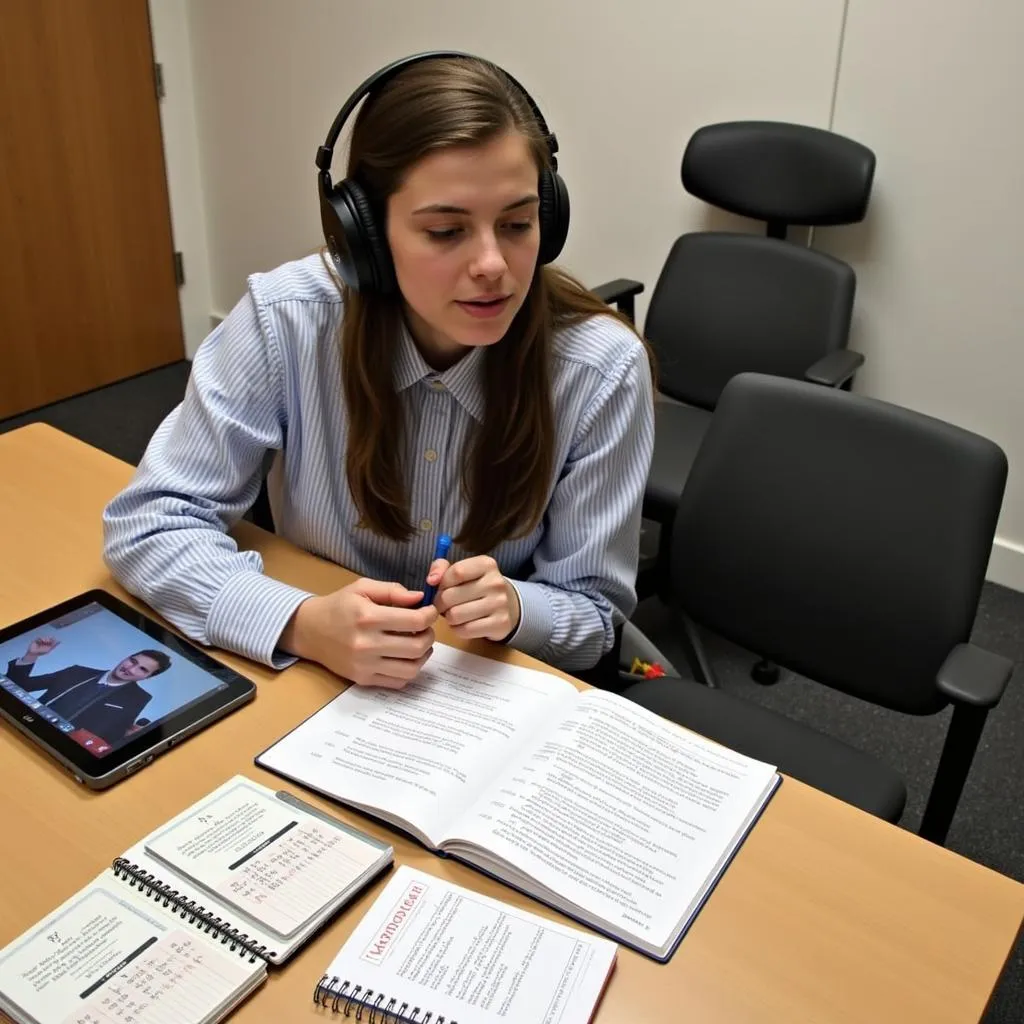The IELTS Speaking test often includes questions about memorable experiences with friends, making it crucial for test-takers to be prepared to discuss such topics. The ability to vividly describe an enjoyable day spent with friends can significantly impact your score, as it demonstrates your language proficiency and ability to communicate personal experiences effectively. This topic has been a recurring theme in past IELTS exams and is likely to remain relevant in future tests.
Nội dung bài viết
Part 1: Introduction and Interview
In this section, the examiner may ask general questions about your friendships and social activities. Here are some common questions you might encounter:
- Do you enjoy spending time with friends?
- How often do you meet up with your friends?
- What activities do you usually do together?
Let’s focus on answering the third question:
Sample answer (Band 7-8):
“Well, my friends and I enjoy a wide range of activities together. We often grab a bite at local cafes or restaurants, which gives us a chance to catch up and share a laugh. On weekends, we might go for a hike in the nearby mountains or hit the beach if the weather’s nice. We’re also quite into board games, so we frequently have game nights at someone’s place. Occasionally, we attend concerts or art exhibitions together, as we all appreciate culture and the arts.”
This answer demonstrates a good vocabulary range, natural use of idioms, and a variety of activities, which would likely score well in the IELTS Speaking test.
Part 2: Long Turn
Cue Card:
Describe an enjoyable day you spent with friends
You should say:
- When and where it happened
- Who you were with
- What you did
- And explain why you found it so enjoyable
Sample answer (Band 8-9):
“I’d like to talk about an incredibly memorable day I spent with my closest friends last summer. It was a scorching hot Saturday in July when we decided to escape the city and head to a nearby lake for a day of fun and relaxation.
There were five of us – my best mates from university: Sarah, Tom, Emily, and Mike. We’ve known each other for years and always have a blast when we’re together.
We set off early in the morning, packing the car with all the essentials – a portable barbecue, coolers full of drinks and snacks, inflatable water toys, and of course, plenty of sunscreen. The drive to the lake was about two hours, but it flew by as we sang along to our favorite tunes and shared stories.
Once we arrived, we found the perfect spot on the shore and set up camp. The day was filled with non-stop activities – we went for a swim in the crystal-clear water, had intense matches of beach volleyball, and even tried our hand at paddleboarding, which led to hilarious attempts and spectacular wipeouts.
As the afternoon wore on, we fired up the barbecue and grilled some delicious burgers and corn on the cob. We sat around, chatting and laughing, as the sun began to set, casting a golden glow over the lake.
What made this day so enjoyable was the perfect combination of beautiful surroundings, fun activities, and most importantly, the company of great friends. It was one of those rare days where everything just fell into place, and we were able to forget about our worries and live in the moment. The shared experiences and inside jokes from that day have become cherished memories that we still look back on fondly.”
Possible follow-up questions:
- Do you prefer outdoor or indoor activities with friends?
- How important is it to have a balance between alone time and time with friends?
Sample answer for question 1 (Band 8-9):
“I’d say I have a preference for outdoor activities with friends, although I enjoy indoor activities too. There’s something invigorating about being in nature that enhances the experience of spending time with friends. Outdoor activities often provide more opportunities for physical exercise and adventure, which can strengthen bonds and create lasting memories. However, I also appreciate the coziness and intimacy of indoor gatherings, especially during inclement weather or when we’re looking for a more low-key hangout.”
 Friends enjoying outdoor activities at a lake
Friends enjoying outdoor activities at a lake
Part 3: Two-way Discussion
In this section, the examiner will ask more abstract questions related to the topic of spending time with friends. Here are some potential questions and sample answers:
Examiner: How do you think friendships have changed with the rise of social media?
Sample answer (Band 7-8):
“Social media has undoubtedly had a significant impact on friendships in recent years. On the one hand, it has made it much easier to stay in touch with friends, especially those who live far away. We can share updates about our lives and maintain connections that might otherwise have faded over time.
However, there’s also a downside to this constant connectivity. Some people might rely too heavily on social media interactions and neglect face-to-face meetings. This can lead to friendships that feel superficial or less authentic.
Moreover, social media can create a sense of FOMO (fear of missing out) when we see our friends’ carefully curated posts about their lives. This might lead to feelings of inadequacy or unhealthy comparisons.
Overall, I believe social media can be a valuable tool for maintaining friendships, but it’s important to strike a balance and not let it replace genuine, in-person interactions.”
Examiner: Do you think the concept of friendship varies across different cultures?
Sample answer (Band 8-9):
“Absolutely, I believe the concept of friendship can vary significantly across different cultures, although there are certainly universal aspects as well.
In some cultures, particularly in the West, friendships tend to be more individualistic and based on personal choice. People often have distinct groups of friends for different aspects of their lives – work friends, school friends, hobby-related friends, and so on. There’s often a clear distinction between acquaintances and close friends.
On the other hand, in many collectivist cultures, such as those found in parts of Asia or Africa, friendships might be more deeply intertwined with family and community networks. There may be a greater emphasis on long-term, loyal relationships that extend beyond the individual to include family members. In these cultures, the boundaries between friend and family might be more blurred.
Another interesting cultural difference is the depth of friendships. In some cultures, people tend to form deep, intimate friendships with a small number of individuals, while in others, it’s more common to have a larger network of friends with whom one might share less personal information.
The role of hospitality in friendships also varies. In some Middle Eastern and Mediterranean cultures, for instance, there’s often a strong tradition of hosting friends and showing generosity, which might be less pronounced in other parts of the world.
It’s also worth noting that globalization and increased cultural exchange are leading to some convergence in how friendships are perceived and maintained across different cultures. However, distinct cultural nuances in friendships still persist and add to the rich tapestry of human relationships worldwide.”
This answer demonstrates a sophisticated understanding of the topic, uses a wide range of vocabulary, and provides specific examples to support the points made.
 Friends from different cultures socializing
Friends from different cultures socializing
Key Vocabulary and Phrases for High Scores
To achieve a high score in the IELTS Speaking test, it’s crucial to use a wide range of vocabulary and complex sentence structures. Here are some key words and phrases that can help elevate your responses:
-
Cherished memories [ˈtʃerɪʃt ˈmem(ə)riz] (noun phrase): Fondly remembered experiences
Example: “That trip to the beach created cherished memories that will last a lifetime.” -
To have a blast [tə hæv ə blæst] (idiom): To have a great time
Example: “We had a blast at the concert last night – the music was incredible!” -
Invigorating [ɪnˈvɪɡəreɪtɪŋ] (adjective): Energizing or refreshing
Example: “The invigorating mountain air made us feel alive and rejuvenated.” -
To strengthen bonds [tə ˈstreŋθən bɒndz] (verb phrase): To improve relationships
Example: “Sharing challenges and triumphs helps to strengthen bonds between friends.” -
Striking a balance [ˈstraɪkɪŋ ə ˈbæləns] (idiom): Finding a compromise between two extremes
Example: “It’s important to strike a balance between work and social life.” -
Deeply intertwined [ˈdiːpli ˌɪntəˈtwaɪnd] (adjective phrase): Closely connected or linked
Example: “In some cultures, friendships are deeply intertwined with family relationships.”
Using these words and phrases naturally in your responses can demonstrate a high level of English proficiency and help you achieve a better score in the IELTS Speaking test.
Examiner’s Advice for High Scores in IELTS Speaking
To excel in the IELTS Speaking test, consider the following tips:
-
Practice regularly: Engage in English conversations daily, even if it’s just talking to yourself in the mirror.
-
Expand your vocabulary: Learn new words and phrases related to common IELTS topics and practice using them in context.
-
Work on fluency: Focus on speaking smoothly without too many pauses or hesitations. It’s okay to use fillers like “well” or “you know” occasionally, but don’t overuse them.
-
Develop your ideas: Don’t just give short answers. Elaborate on your points and provide examples to support your opinions.
-
Use a variety of grammatical structures: Incorporate complex sentences, conditionals, and different tenses to showcase your language skills.
-
Improve your pronunciation: Pay attention to word stress, sentence stress, and intonation. Clear pronunciation is crucial for a high score.
-
Listen carefully: Make sure you understand the examiner’s questions fully before answering. It’s okay to ask for clarification if needed.
-
Be confident: Speak clearly and maintain good eye contact with the examiner. Confidence can positively impact your performance.
-
Stay on topic: Ensure your answers are relevant to the questions asked. Avoid going off on tangents.
-
Be authentic: While it’s good to prepare, avoid memorizing answers. Speak naturally and let your personality shine through.
Remember, the key to success in the IELTS Speaking test is not just about perfect English, but also about effective communication and the ability to express your ideas clearly and confidently.
 IELTS Speaking test preparation
IELTS Speaking test preparation
By following these guidelines and practicing regularly, you can significantly improve your performance in the IELTS Speaking test, particularly when describing enjoyable experiences with friends. Remember, the key is to communicate effectively while showcasing your English language skills.
If you found this guide helpful, you might also be interested in learning how to describe a special moment with a childhood friend or describe a weekend that you enjoyed and still remember. These topics are closely related and can help you further prepare for the IELTS Speaking test.


